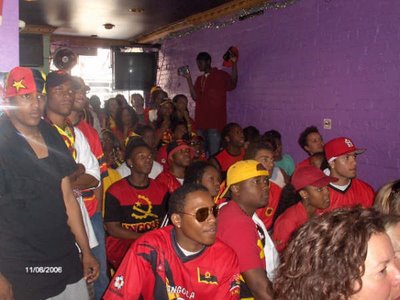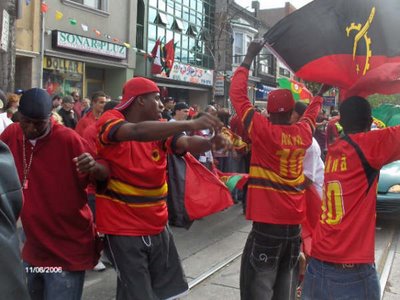I thought I would begin this blog by reviewing the books that I have read so far this summer. These books were all happened upon in the course of my shelving duties at Robarts Library. All were written in English, but the writers come from diverse origins: Iraq, Greece, Zimbabwe, Native BC, Black LA. Here they are, in order of reading:
Salam Pax, The Baghdad Blog
A collection of blogs written in Baghdad during the recent war. The blog precedes the war by several months, so the reader gets a good sense of Salam Pax’s personality both before and during the war. Most interesting to me was how Salam and his family dealt with the anticipation of the war, and its aftermath. Salam writes crisply and with a great sense of humour. He mixes his political analysis with music reviews, and stories of his fmaily and friends, in a highly compelling way.
Eden Robinson, Monkey Beach
The first novel by a young Haisla/Heiltsuk women living in North Vancouver. The novel is set in the Haisla village of Kitimaat, south of Terrace on the Northern BC coast. The coming of age story of Lisamarie, a young Haisla woman growing up in the village, set against the backdrop of the disappearance of the protagonist’s brother, Jimmy. The novel flits constantly between different time periods, and skilfully weaves in mythological elements, such as sasquaches, and local geography.
Iceberg Slim, Doom Fox
The final novel of Iceberg Slim, the pen name of Robert Beck, written in 1978 but only published twenty years later, thanks to Ice T. Iceberg Slim was a notorious Chicago pimp turned cult writer. This work is the saga of three generations of the Allen family, living in the black ghetto of South Central Los Angeles. The novel contains the standard pulp elements of prostitution, drugs and violence, but these are secondary to the story. The writing definitely transcends the pulp fiction genre, and the plot development is on the par of any literary work. The colourful language alone makes this a worthy read.
Panos Karnezis, Little Infamies
The first collection of short stories by a Greek writer living in London. The stories are all set in an unnamed, sleepy Greek village, in an unspecified time in the twentieth century. The stories refer to each other, giving the work the feeling of cohesiveness. The stories mix in elements of Greek mythology, such as Medusa and minotuars, and a healthy distrust of the nation state. The style evokes Garcia Marquez transposed to a Mediterranean setting. Highly recommended.
Dambudzo Marechera, House of Hunger
The first collection of short stories by the late Zimbabwean author. Marechera made a sharp break with the tradition of African realism, drawing more on Kafka and Dostoyevsky. His stories are highly autobiographical, sometimes uncomfortably so, as they are laced with hatred and disgust directed equally at the Rhodesian colonialists, Zimbabwean society, and the author/protagonist himself. The writing style is a little too wordy for my taste, and reminded me a little of Breytan Breytanbach. Interesting for its portrayal of the place of the black intellectual in colonial Rhodesia.










